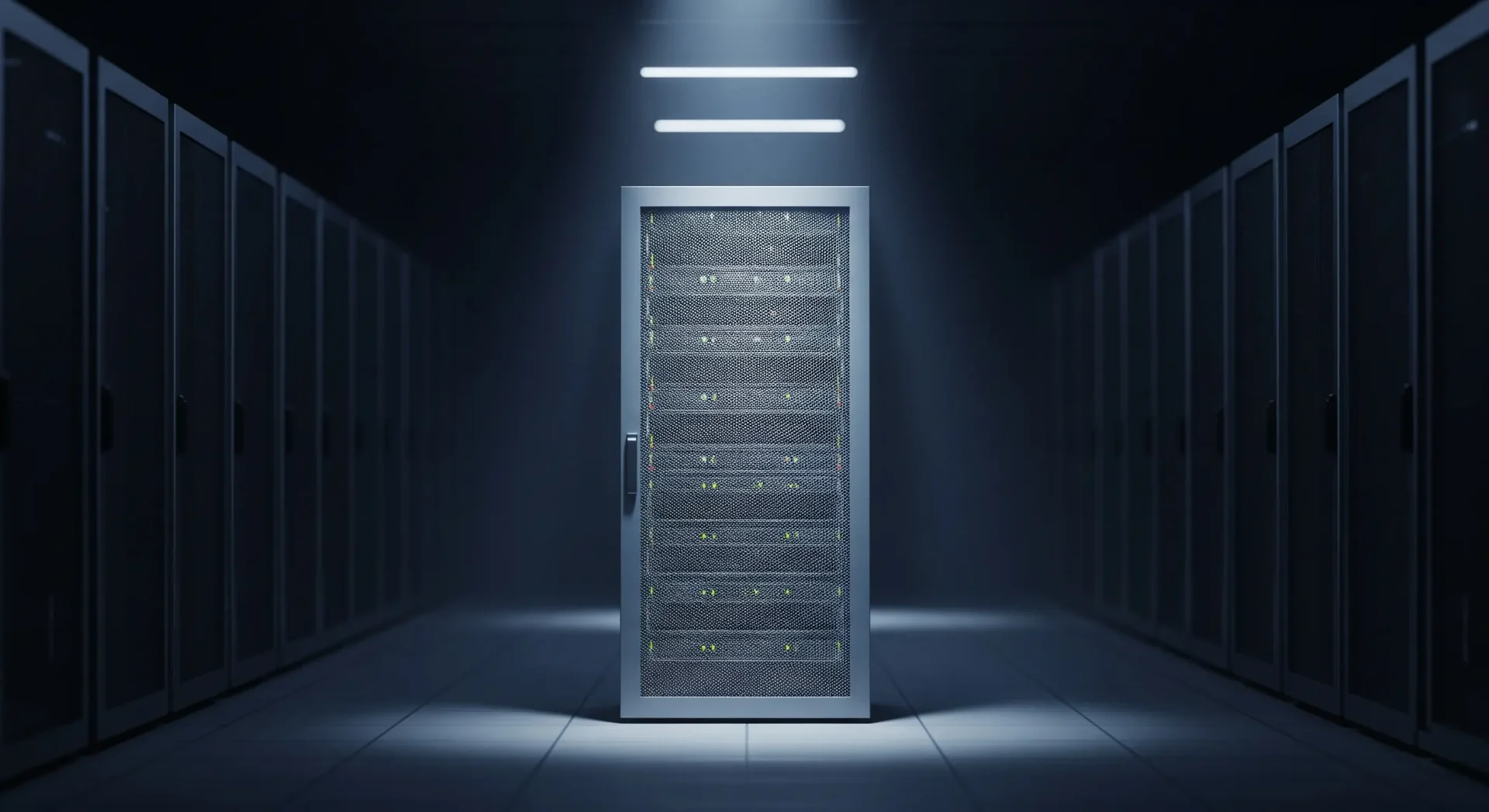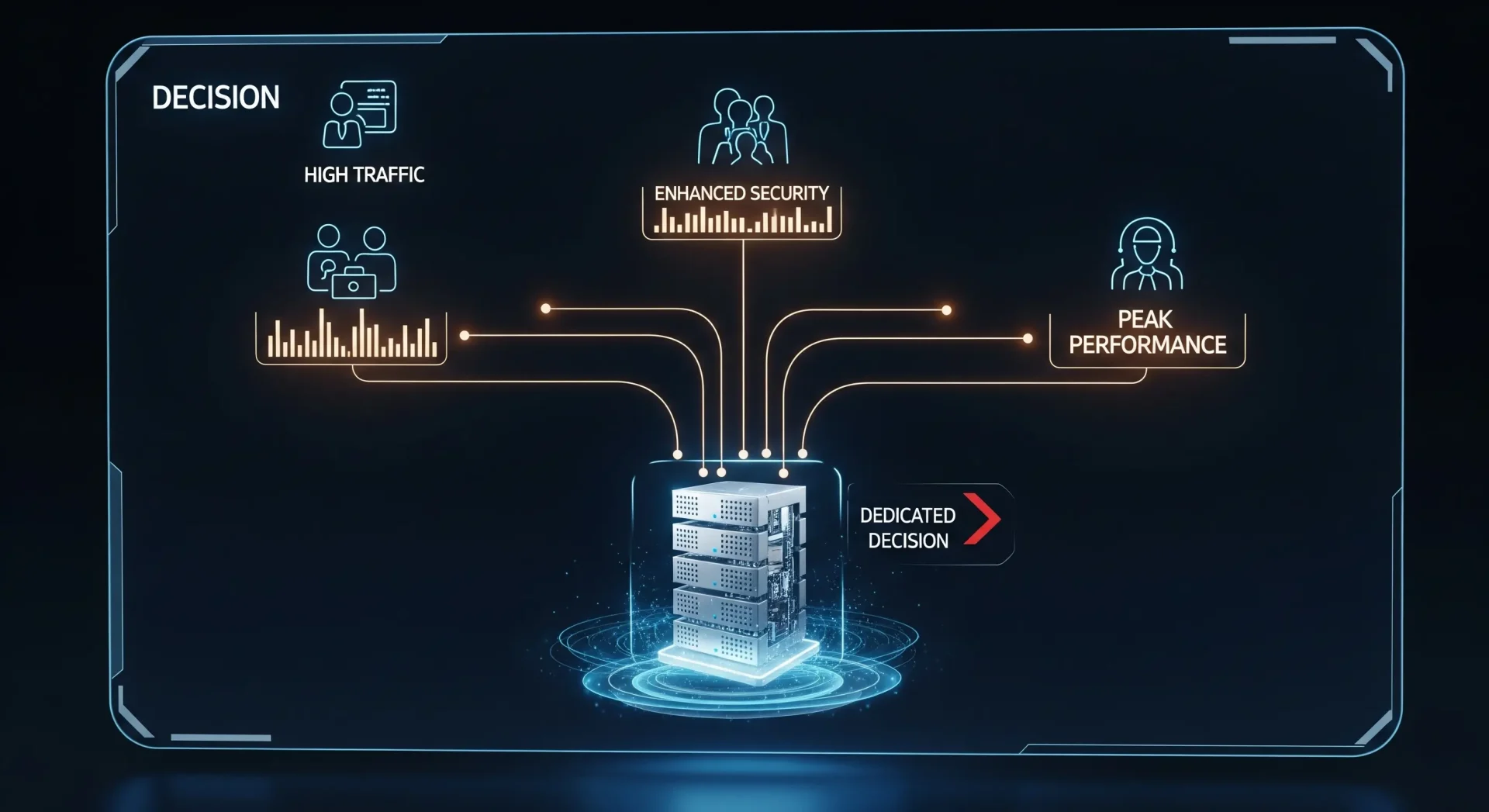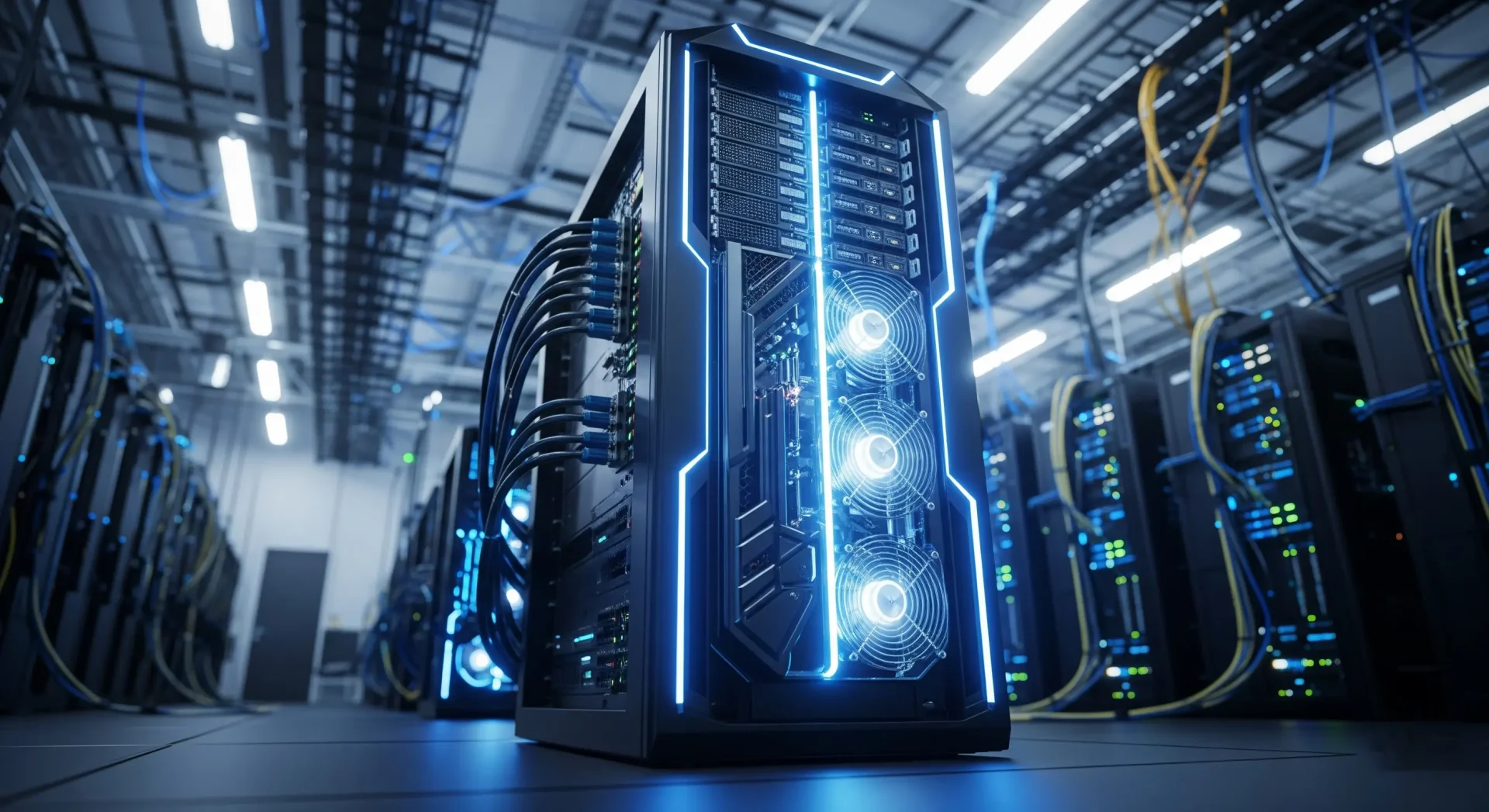What is a Dedicated Server?
In today’s digital landscape, choosing the right web hosting solution is one of the most critical decisions a website owner or business will make. Among the myriad of options available, the dedicated server stands out as the most powerful and secure solution. But what exactly is a dedicated server, and when should you consider making the switch? In this comprehensive guide, we will answer all your questions about dedicated servers and help you gain a clear understanding of whether this robust hosting solution aligns with your specific needs.

Understanding the Core Concept of a Dedicated Server
To grasp the essence of a dedicated server, let’s use a simple analogy. Imagine a large office building with numerous individual units. With shared hosting, you essentially rent a desk or a small cubicle within one of these units, sharing all the building’s resources like the internet connection, meeting rooms, and utilities with other tenants. In a Virtual Private Server (VPS) environment, it’s akin to renting an entire office suite on a floor, offering more space and a degree of isolation, but still within the same shared building.
However, a dedicated server is like owning the entire building outright. You have exclusive access to all the resources, from the foundation to the rooftop, including the entire infrastructure, utilities, and, most importantly, all the computing power within.
In more technical terms, a dedicated server is a single physical computer housed within a secure data center facility. Unlike shared hosting or VPS, where multiple users share the resources of a single server, a dedicated server allocates all its hardware resources – including the central processing unit (CPU), random access memory (RAM), storage space (hard disk drives or solid-state drives), and network bandwidth – exclusively to a single client. This exclusive allocation provides unparalleled control, enhanced security, and superior performance for your online presence.
Key Advantages of Choosing a Dedicated Server
Opting for a dedicated server unlocks a multitude of significant benefits, particularly for large enterprises, high-traffic websites, and mission-critical applications:
- Unrivaled Power and Performance: Since you are not sharing any resources with other users, your website or application will operate at maximum speed and efficiency. This is crucial for e-commerce sites handling a high volume of transactions, online learning platforms streaming numerous videos concurrently, and news websites experiencing millions of daily visitors. Dedicated resources ensure consistent performance, eliminating the “noisy neighbor” effect where another user’s activity can negatively impact your site’s speed and stability.
- Enhanced Security and Control: The complete isolation of your server environment significantly bolsters your security posture. Unlike shared hosting where vulnerabilities in another user’s site could potentially be exploited to access your data, a dedicated server provides a more secure foundation. You have root access to the server, granting you complete administrative control over the operating system, security configurations (such as firewalls and intrusion detection systems), and installed software. This level of control allows you to tailor the security measures precisely to your specific requirements and compliance standards, making it the ideal choice for storing sensitive customer information, financial data, and confidential business intelligence.
- Customization and Flexibility: Dedicated servers offer unparalleled flexibility in terms of customization. You have the freedom to choose the operating system (such as various Linux distributions or Windows Server), install specific software and applications that are essential for your operations, and configure the server environment precisely to your technical specifications. This level of customization is often unavailable with shared or VPS hosting, where you are typically limited to the hosting provider’s pre-configured environment. Whether you need a specific database configuration, specialized development tools, or a particular software stack, a dedicated server allows you to create the perfect hosting environment for your unique needs.
- Dedicated Resources Guarantee: Unlike shared hosting where resource allocation can fluctuate depending on the activity of other users on the server, a dedicated server guarantees the resources you are paying for will always be available to you. This predictability in resource availability is essential for applications with consistent or predictable demands, ensuring smooth and reliable operation even during peak traffic periods. You don’t have to worry about your website slowing down or crashing because another user on the same server is experiencing a surge in traffic or resource usage.
- Scalability and Growth Potential: While a dedicated server might represent a significant investment initially, it provides a solid foundation for future growth. As your website traffic and resource demands increase, you have the capacity to scale your server resources further, whether it’s upgrading RAM, adding more storage, or increasing bandwidth. While physical upgrades might require some downtime, the dedicated nature of the server ensures that these upgrades are focused solely on your needs and will directly benefit your application’s performance.
- Improved Website Uptime: The combination of dedicated resources, enhanced security, and greater control over the server environment typically translates to improved website uptime. With no shared resources to compete for and the ability to implement robust security measures, your website is less susceptible to performance bottlenecks, security breaches, and the cascading effects of issues affecting other users. This increased reliability is crucial for maintaining a positive user experience, minimizing potential revenue loss, and preserving your online reputation.
- Unique IP Address: Each dedicated server comes with its own unique IP address. This is particularly important for certain applications, such as running an SSL certificate for secure online transactions or setting up a private FTP server. A dedicated IP address can also improve your website’s SEO (Search Engine Optimization) in some cases, as it avoids the potential negative impact of being associated with a “bad neighborhood” of websites that might occur on shared hosting with a shared IP address.
When is a Dedicated Server the Right Choice for You?
While dedicated servers offer numerous advantages, they are not always the most suitable option for every website or business. Here are some key indicators that suggest a dedicated server might be the right choice for your needs:

- High Website Traffic: If your website consistently experiences a large volume of visitors and generates significant traffic, a dedicated server can provide the necessary bandwidth and processing power to handle the load without performance degradation.
- Resource-Intensive Applications: If you are running applications that demand significant CPU, RAM, or storage resources, such as video streaming platforms, large databases, complex web applications, or online gaming servers, a dedicated server ensures these resources are readily available.
- Strict Security and Compliance Requirements: Industries that handle sensitive data, such as healthcare, finance, and e-commerce, often have stringent security and compliance regulations (e.g., HIPAA, PCI DSS). The enhanced security and control offered by dedicated servers can help meet these requirements.
- Need for Full Root Access and Customization: If you require complete control over the server’s operating system, software installations, and configurations, root access provided by dedicated servers is essential.
- Expected Future Growth: If you anticipate significant growth in your website traffic or application usage, investing in a dedicated server provides a scalable infrastructure to accommodate your future needs.
- Performance-Critical Applications: For applications where speed and responsiveness are paramount, such as real-time trading platforms or high-performance computing tasks, the dedicated resources of a dedicated server are crucial.
- Running Multiple Websites or Applications: While possible on other hosting solutions, managing multiple high-traffic websites or resource-intensive applications is best handled on a dedicated server to ensure optimal performance and isolation.
Factors to Consider When Choosing a Dedicated Server Provider
Selecting the right dedicated server provider is just as important as deciding whether a dedicated server is the right solution for you. Here are some key factors to consider during your selection process:
- Hardware Specifications: Evaluate the server’s CPU, RAM, storage (type and capacity), and network interface card to ensure they meet your current and future performance requirements. Consider the availability of different server configurations to match your budget and needs.
- Bandwidth and Network Connectivity: Assess the amount of bandwidth included with the server and the reliability of the provider’s network infrastructure. Look for providers with redundant network connections and low latency to ensure optimal performance and uptime.
- Data Center Location and Infrastructure: The physical location of the data center can impact website loading speeds for your target audience. Consider a data center geographically closer to your primary users. Evaluate the data center’s security measures, power redundancy, cooling systems, and overall infrastructure.
- Managed Services and Support: Determine the level of management and support you require. Some providers offer fully managed dedicated servers, where they handle tasks like operating system updates, security patching, and server monitoring. Others offer unmanaged or self-managed servers, requiring you to handle these tasks yourself. Evaluate the provider’s support channels (e.g., phone, email, live chat) and their responsiveness.
- Scalability Options: Inquire about the provider’s options for scaling your server resources in the future, such as upgrading hardware or adding bandwidth. Understand the process and potential downtime associated with such upgrades.
- Pricing and Contract Terms: Compare the pricing of different dedicated server plans and consider the contract terms. Look for transparent pricing with no hidden fees. Understand the billing cycle and any penalties for early termination.
- Reputation and Reviews: Research the provider’s reputation and read customer reviews to gauge their reliability, performance, and customer support quality.

Conclusion: Empowering Your Online Presence with a Dedicated Server
In conclusion, a dedicated server represents the pinnacle of web hosting, offering unparalleled power, security, control, and flexibility. While it may be a more significant investment compared to shared or VPS hosting, the benefits it provides are invaluable for businesses and individuals with demanding online needs. By understanding the core concepts, advantages, and key considerations outlined in this guide, you can make an informed decision about whether a dedicated server is the right solution to empower your online presence and achieve your digital goals. If your website experiences high traffic, runs resource-intensive applications, requires stringent security measures, or demands complete control over your hosting environment, a dedicated server is undoubtedly a hosting solution worth serious consideration.


